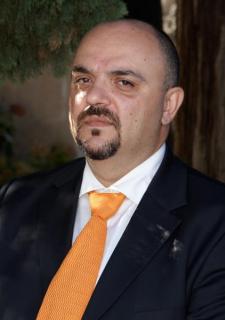Code: BIOL-474
Semester: H
Course Type: Elective
ECTS units: 4
Hours per week: Theory - 2 hours
Instructor

Professor: Spilianakis Charalampos
Email:
Office phone number: +30 2810 391163
Lab phone number: +30 2810 391173
Description
Objectives of the course (preferably expressed in terms of learning outcomes and competences): Aims: This module aims to provide training in core research and communication skills. Learning Outcome: By the end of the module, a student will be able to demonstrate: (i) the ability to communicate science effectively, in both writing and orally, to peers and the general public; (ii) a knowledge of the principles that underpin the scientific method; (iii) a knowledge of the environment in which scientists fund and execute their research; (iv) identify and work towards targets for career development; and (v) develop skills necessary for self-managed and lifelong learning.
Student Contact Time: The majority of teaching will be in the form of lectures, each of which will focus on specific aspects of the module, demonstrating the necessary skills and then requiring students to use the new skills. The workshops will be both of a practical and theoretical nature. The tutorials will provide guidance for the tasks allocated during the workshops and expand on certain aspects of the module that are more amenable to smaller-group study. The lectures will provide an introduction to the themes that are developed in the workshops. Workshops will include those on scientific writing, presenting research to the media, and career development.
Course contents:
This module provides training in the skills necessary to pursue a research career in Biology. The skills covered include: communication (both written and oral); advanced science writing (e.g. journal publications and grant applications). The module is divided into three main components, each consisting of workshops and training sessions: Research Funding and Communication, Science and the media, Effective marketing of your research skills.
- Write your CV.
- Communication (oral/written).
- Accomplish your goal in an interview.
- Keeping notes in the lab. Archiving, monitoring, storage of primary research data.
- How to write your Diploma Thesis.
- How to present primary research data to the general public.
- Seeking for fellowships - how to write your application – Ask for recommendation letters.
- Research Ethics – Plagiarism


